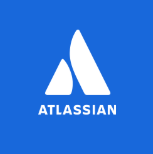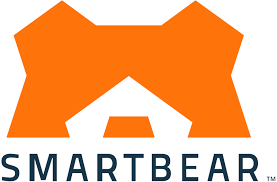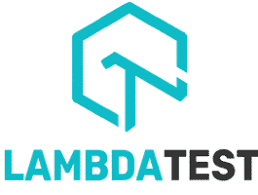In the rush of modern software development, where code ships faster than ever, testing can’t lag behind-or it becomes the bottleneck that kills momentum. DevOps teams know the drill: you need tools that weave testing right into the CI/CD flow, spotting issues before they blow up in production. That’s where the top companies in this space shine, offering platforms that handle everything from unit checks to full load simulations without slowing anyone down. This roundup dives into standout options from those leaders, highlighting what makes them tick for real-world pipelines. Whether you’re scaling microservices or just trying to cut down on flaky builds, these picks can make a real difference in keeping things smooth and reliable.

1. AppFirst
AppFirst was built to let developers describe what an app requires – like compute power, a database, or networking setup – and it handles all the provisioning automatically across clouds like AWS, Azure, or GCP. It integrates services such as Fargate for containers or RDS for storage, along with IAM roles and secrets, without requiring anyone to touch Terraform scripts or YAML files. Security practices are standard, and AppFirst layers in logging, monitoring, and alerts from the start, ensuring changes are audited centrally while costs are displayed clearly by app or environment.
Switching providers remains straightforward since the app description does not change; AppFirst maps it to the new cloud’s equivalents. It offers SaaS deployment for ease or self-hosted options for tighter control, accommodating various compliance requirements. Currently in pre-launch, AppFirst invites interested users to join a waitlist for early access, with pricing to be announced upon rollout.
Wichtigste Highlights:
- Automatic setup for compute, databases, messaging
- Built-in security, logging, and monitoring
- Cost tracking and change audits
- Multi-cloud support without redefinition
- SaaS or self-hosted choices
Für wen es am besten geeignet ist:
- Developers skipping infra code for app focus
- Groups standardizing cloud practices
- Setups ditching custom platform builds
- Crews needing quick multi-cloud shifts
Kontaktinformationen:
- Website: www.appfirst.dev

2. Atlassian Tools
Developers and groups use Atlassian’s setup to plan sprints, track bugs, and handle DevOps workflows through ready templates. The platform ties into agile practices, letting users manage tasks from start to finish while keeping everything in one spot. It supports open tool choices, so connections with other systems happen without much hassle, and recent AI additions help with smarter insights during development cycles.
Scrum and bug tracking features stand out for daily use, alongside DevOps options that fit into existing pipelines. Cloud versions reduce maintenance, and the marketplace offers extra apps to extend functions. Teams adapt it for startups or larger setups, focusing on collaboration without heavy setup.
Wichtigste Highlights:
- Scrum templates for sprint planning and management
- Bug tracking to report and prioritize issues
- DevOps templates with open tool integration
- AI features in cloud platform for better insights
- Marketplace with thousands of apps
Für wen es am besten geeignet ist:
- Groups running agile or scrum methods
- Developers needing bug tracking in one place
- Setups wanting cloud with less maintenance
- Users building on existing CI/CD flows
Kontaktinformationen:
- Website: www.atlassian.com
- Telefon: +1 415 701 1110
- Anschrift: 350 Bush Street Floor 13 San Francisco, CA 94104 Vereinigte Staaten
- LinkedIn: www.linkedin.com/company/atlassian
- Facebook: www.facebook.com/Atlassian
- Twitter: x.com/atlassian

3. TestRail
QA groups rely on TestRail to organize test cases, run executions, and link everything to requirements or defects. The tool pulls in AI to suggest tests from user stories, but users keep full control before applying changes. It connects smoothly with CI/CD systems and issue trackers, blending manual and automated efforts in a single view.
Dashboards show coverage and progress without complex setup, and traceability covers compliance needs. Workflows adjust to different methods, with audit trails and permissions built in. Integration options include popular pipelines, making it fit into varied stacks.
Wichtigste Highlights:
- AI-generated tests from requirements with user approval
- Unified manual and automated test tracking
- Custom dashboards for coverage and metrics
- Traceability between requirements, cases, and defects
- CI/CD and tool integrations like Jira
Für wen es am besten geeignet ist:
- QA focused on structured test management
- Setups needing compliance and audit logs
- Groups mixing manual and automated tests
- Users wanting flexible workflow adjustments
Kontaktinformationen:
- Website: www.testrail.com
- Phone: +1 713-533-5000
- Address: 4001 W Parmer Lane Suite 125 Austin, TX 78727 USA
- LinkedIn: www.linkedin.com/company/testrail
- Facebook: www.facebook.com/testrailofficial
- Twitter: x.com/testrail

4. BrowserStack
Testing crews access BrowserStack’s cloud to check web and mobile apps across real browsers and devices. It covers cross-browser checks, visual comparisons, and accessibility standards, all from a shared platform. AI elements speed up parts of the cycle, like spotting issues or optimizing runs, while keeping scale in mind.
Integration fits into CI/CD setups, pulling in frameworks like Selenium or Appium, and results feed back into tools like Jenkins or Slack. Manual sessions happen live on actual hardware, and automation grids handle larger batches. The focus stays on reducing device lab hassles.
Wichtigste Highlights:
- Real device and browser access for manual testing
- Automation support for Selenium, Appium, Cypress
- Visual and accessibility testing options
- AI boosts across test lifecycle
- CI/CD ties with Jenkins, GitLab, Slack
Für wen es am besten geeignet ist:
- Crews testing on many devices and browsers
- Setups running automated grids at scale
- Groups needing visual or accessibility checks
- Pipelines wanting real-device feedback fast
Kontaktinformationen:
- Website: www.browserstack.com
- Telefon: +1 (409) 230-0346
- E-Mail: support@browserstack.com
- LinkedIn: www.linkedin.com/company/browserstack
- Facebook: www.facebook.com/pages/BrowserStack
- Twitter: x.com/browserstack
- Instagram: www.instagram.com/browserstack

5. Opkey
Enterprises handling ERP systems turn to Opkey for managing configurations, migrations, and ongoing updates across packages like Oracle or Workday. The platform uses AI agents to map processes, suggest tests, and handle script maintenance, keeping manual tweaks to a minimum. It fits into implementation projects by tracking changes and providing visibility into each step, which helps avoid surprises during rollouts.
Testing focuses on regression suites for patch cycles, with self-healing scripts that adjust when UI elements shift. Support agents analyze user paths in real time, while training tools generate guides from existing test data. The setup works for no-code users yet scales to complex customizations.
Wichtigste Highlights:
- AI agents for configuration mapping and migration
- Self-healing test scripts for ERP regression
- Real-time support analysis of user journeys
- Automated guide creation from test cases
- Integration with Oracle, Workday, Coupa
Für wen es am besten geeignet ist:
- Groups running ERP implementations or upgrades
- Setups managing quarterly patch testing
- Users needing config comparison across environments
- Crews wanting AI-driven script maintenance
Kontaktinformationen:
- Website: www.opkey.com
- LinkedIn: www.linkedin.com/company/opkey
- Facebook: www.facebook.com/opkeyAI
- Twitter: x.com/OpkeyAI

6. QA Wolf
Startups and product crews use QA Wolf to build end-to-end automated tests for web and mobile flows, leaning on Playwright for browsers and Appium for devices. AI kicks in to draft tests and spot flakes, but human reviewers sign off before anything runs in production pipelines. The service handles parallel execution in its own cloud, feeding results back fast.
Coverage builds around core user paths, with open-source code handed over to avoid lock-in. Maintenance runs round the clock, fixing breaks as they appear. Integration plugs into CI/CD tools and issue trackers, keeping feedback loops tight.
Wichtigste Highlights:
- AI-drafted tests with human approval
- Parallel runs on Playwright and Appium
- Zero-flake handling via AI and review
- Open-source test code ownership
- CI/CD ties to Jira, Linear, ClickUp
Für wen es am besten geeignet ist:
- Product groups shipping web or mobile often
- Setups needing fast end-to-end coverage
- Crews tired of flaky test maintenance
- Pipelines wanting quick pass/fail feedback
Kontaktinformationen:
- Website: www.qawolf.com
- LinkedIn: www.linkedin.com/company/qa-wolf
- Twitter: x.com/qawolfhq
7. Postman
Developers building APIs gather in Postman to sketch prototypes, write docs, run checks, and show demos all from one spot. Conversations happen right next to the specs, cutting down on tool switching and letting feedback flow early. Collections store endpoints for reuse, so anyone can grab an API and start poking at it without rebuilding from zero.
The platform hooks into common CI/CD setups and issue trackers, keeping tests in the loop. Governance rules apply across internal or partner APIs, and the Model Context Protocol adds structure for AI agents that need reliable data. It stays open, with extensions fitting whatever stack is in play.
Wichtigste Highlights:
- Collections for storing and sharing APIs
- Built-in testing and demo workflows
- Comments tied directly to API elements
- Model Context Protocol for AI agents
- Ties to Jenkins, Slack, GitHub
Für wen es am besten geeignet ist:
- Groups prototyping APIs together
- Setups needing docs next to code
- Crews sharing internal or partner endpoints
- Pipelines adding AI agent checks
Kontaktinformationen:
- Website: www.postman.com
- Phone: (888) 616-1665
- Email: help@postman.com
- LinkedIn: www.linkedin.com/company/postman-platform
- Twitter: x.com/getpostman
- Instagram: www.instagram.com/getpostman

8. Katalon
QA folks pick Katalon to script tests with AI help, record actions without code, or dive into full scripts when needed. StudioAssist turns plain sentences into cases, while self-healing locators fix broken paths on the fly. Execution jumps from local runs to cloud browsers or CI/CD jobs, with clear debug views showing variables and breaks.
The setup covers web, mobile, and API checks in one place, plugging into Jira or Jenkins without fuss. Custom keywords let users extend functions, and TestCloud handles scale for bigger suites. Maintenance stays light thanks to reusable objects and data files.
Wichtigste Highlights:
- AI conversion of text to test cases
- No-code recording with low-code edits
- Self-healing for locator changes
- Cloud execution via TestCloud
- Custom keywords and object reuse
Für wen es am besten geeignet ist:
- QA mixing no-code and script work
- Setups running web, mobile, API tests
- Groups scaling via cloud browsers
- Crews wanting quick debug views
Kontaktinformationen:
- Website: katalon.com
- Email: business@katalon.com
- Address: 1720 Peachtree Street NW, Suite 870, Atlanta, GA 30309
- LinkedIn: www.linkedin.com/company/katalon
- Facebook: www.facebook.com/KatalonPlatform
- Twitter: x.com/KatalonPlattform

9. SonarQube
Coders lean on SonarQube to scan sources for bugs, smells, and security holes, whether hand-written or AI-spat. It slots into IDEs for instant flags, build pipes for gate checks, or self-hosted servers for full control. Feedback points straight to fixes, and AI suggestions speed up cleanups on legacy bits.
The tool watches dozens of languages and IaC files, catching issues from open-source libs too. Cloud or on-prem options fit DevOps flows, keeping standards steady across branches. Orchestration rules block risky merges until things shape up.
Wichtigste Highlights:
- IDE checks during coding
- Security scans on third-party code
- AI fix suggestions for old code
- Cloud and self-managed servers
- Support for many languages and IaC
Für wen es am besten geeignet ist:
- Devs wanting in-IDE quality flags
- Setups scanning open-source risks
- Groups cleaning legacy code
- Pipelines gating on code health
Kontaktinformationen:
- Website: www.sonarsource.com
- Address: Geneva, Switzerland, Chemin de Blandonnet 10, CH – 1214, Vernier
- LinkedIn: www.linkedin.com/company/sonarsource
- Twitter: x.com/sonarsource

10. SmartBear Tools
Groups handling APIs and apps use SmartBear’s suite to design specs, run functional checks, and watch production behavior from one setup. Tools like ReadyAPI catch contract breaks early, while TestComplete scripts desktop or UI flows with AI tweaks for healing or data generation. Observability pieces track errors, traces, and user sessions, tying back to fixes without leaving the platform.
Zephyr manages plans for agile runs, and no-code options in Reflect build web tests quick. AI suggests risks or fills gaps, and everything plugs into Jenkins or GitHub Actions. Open-source roots keep extensions coming from the community.
Wichtigste Highlights:
- API design with templates and governance
- Contract testing for backward compatibility
- Desktop automation in TestComplete
- Error monitoring and distributed tracing
- AI test generation and self-healing
Für wen es am besten geeignet ist:
- Crews standardizing API workflows
- Setups automating desktop or UI
- Groups needing production error ties
- Pipelines mixing no-code and scripts
Kontaktinformationen:
- Website: smartbear.com
- Telefon: +1 617-684-2600
- Email: info@smartbear.com
- Adresse: 450 Artisan Way Somerville, MA 02145
- LinkedIn: www.linkedin.com/company/smartbear
- Facebook: www.facebook.com/smartbear
- Twitter: x.com/smartbear
- Instagram: www.instagram.com/smartbear_software

11. mabl
QA and dev folks adopt mabl’s agentic AI to draft, run, and fix end-to-end tests without constant manual tweaks. The tester acts like a co-pilot, handling creation from prompts, spotting flakes, and pushing insights to Jira or IDEs. It scales for web, API, or mobile, keeping feedback in the daily flow.
Semantic search digs through old tests for reuse, and the MCP hub links to external agents or trackers. Maintenance happens auto, with triage on failures feeding straight to tickets. The focus stays on strategic work over toil.
Wichtigste Highlights:
- Agentic creation from natural language
- Auto triage and flake handling
- IDE or CLI feedback loops
- Semantic search in test library
- MCP for agent integrations
Für wen es am besten geeignet ist:
- QA chasing less repetitive work
- Devs wanting in-flow test results
- Setups scaling end-to-end checks
- Groups tying tests to Jira fast
Kontaktinformationen:
- Website: www.mabl.com
- LinkedIn: www.linkedin.com/company/mabl
- Facebook: www.facebook.com/mabl.inc
- Twitter: x.com/mablhq
- Instagram: www.instagram.com/mablhq

12. LambdaTest
Testers fire up LambdaTest’s cloud for cross-browser checks or real-device app runs, manual or scripted. KaneAI turns plain talk into full test plans, evolving them as apps change. HyperExecute speeds orchestration, cutting wait times compared to standard grids.
Agent-to-agent testing covers chatbots or voice flows in real scenarios. The platform offers public, dedicated, or on-prem devices, plus visual and accessibility tools. Pros jump in for sprint help when needed.
Wichtigste Highlights:
- KaneAI for natural language tests
- Real device cloud for iOS and Android
- HyperExecute fast orchestration
- Agent-to-agent for chatbots
- Browser grid with many versions
Für wen es am besten geeignet ist:
- Crews testing many browser combos
- Mobile groups needing real hardware
- Setups speeding execution clouds
- QA building AI agent checks
Kontaktinformationen:
- Website: www.lambdatest.com
- Telefon: +1-(866)-430-7087
- Email: support@lambdatest.com
- Address: 1 Sutter Street, Suite 500 San Francisco CA 94104
- LinkedIn: www.linkedin.com/company/lambdatest
- Facebook: www.facebook.com/lambdatest
- Twitter: x.com/Lambdatesting
13. GitLab
DevSecOps crews run the full cycle in GitLab, from planning boards to CI/CD pipes with security scans baked in. AI features like Duo chat in IDEs or code suggestions help write safer bits quicker, while the single app keeps commits, merges, and deployments tracked without jumping tools. Automation handles unit to compliance checks, looping feedback straight back.
The platform supports remote work with monthly drops, and open-source roots let community tweaks flow in. Premium tiers add the AI extras, but core stays free for basic pipelines. It fits agile or waterfall, scaling from solo devs to big orgs.
Wichtigste Highlights:
- AI chat and suggestions in IDE
- Built-in security and compliance scans
- CI/CD automation in one app
- Planning to production tracking
- Open-source base with community input
Für wen es am besten geeignet ist:
- Groups wanting all-in-one DevSecOps
- Devs needing AI code help
- Setups automating security early
- Crews tracking from idea to deploy
Kontaktinformationen:
- Website: gitlab.com
- LinkedIn: www.linkedin.com/company/gitlab-com
- Facebook: www.facebook.com/gitlab
- Twitter: x.com/gitlab

14. HeadSpin
App testers grab HeadSpin’s real-device cloud across many locations for manual or scripted runs on phones, browsers, or TVs. AI digs into session data for root causes, pulling KPIs on UI, network, and experience into one view. Regression compares builds or networks with tags for quick spots.
Waterfall views tie issues to recordings, and custom dashboards graph whatever metrics matter. No SDK needed, just API calls for automation. On-prem or hosted fits secure setups.
Wichtigste Highlights:
- Real SIM devices in many spots
- AI root cause on sessions
- Regression build comparisons
- Video MOS without reference
- REST API for workflows
Für wen es am besten geeignet ist:
- Mobile crews testing real hardware
- Setups watching UX KPIs
- Groups needing network bottleneck views
- AV or Smart TV checkers
Kontaktinformationen:
- Website: www.headspin.io
- LinkedIn: www.linkedin.com/company/headspin
- Facebook: www.facebook.com/HeadSpin.io
- Twitter: x.com/headspin_io
15. Ranorex
UI automation folks use Ranorex Studio for desktop, web, or mobile tests with code or capture-replay. Object recognition handles dynamic elements reliably, cutting maintenance on tricky interfaces. Low-code paths let beginners build fast, while full IDE suits pros with debugging and refactoring.
It plugs into Jenkins or Azure DevOps, sharing repositories across users. Enterprise locks down with on-prem and role controls. A fourteen-day trial gives full Studio access, no card needed.
Wichtigste Highlights:
- Capture-replay with low-code edits
- Advanced object ID for dynamics
- Full IDE for scripted tests
- CI/CD ties to Jira, Jenkins
- Shared modules and repositories
Für wen es am besten geeignet ist:
- QA mixing code and no-code
- Setups testing legacy UIs
- Groups automating desktop flows
- Crews sharing test assets
Kontaktinformationen:
- Website: www.ranorex.com
- LinkedIn: www.linkedin.com/company/ranorex-gmbh
- Facebook: www.facebook.com/Ranorex
- Twitter: x.com/ranorex

16. Tricentis
Enterprise QA picks Tricentis for agentic AI across automation, management, and performance in one platform. Tests cover any app or infra, with AI planning or evolving cases from plain talk. It ties into DevOps for continuous runs, handling shift-left without silos.
Quality intelligence pulls insights from runs, and remote MCP servers let agents collaborate on ideas. Any model works, keeping flexibility. Co-development gives early access to new bits.
Wichtigste Highlights:
- Agentic AI for test planning
- End-to-end automation and management
- Performance testing built in
- Shift-left continuous checks
- MCP for agent collaboration
Für wen es am besten geeignet ist:
- Big orgs needing full quality stack
- Setups using AI in every test stage
- Groups shifting tests left
- Crews wanting model-agnostic AI
Kontaktinformationen:
- Website: www.tricentis.com
- Telefon: +1 737-497-9993
- Email: office@tricentis.com
- Address: 5301 Southwest Parkway Building 2, Suite #200 Austin, TX 78735
- LinkedIn: www.linkedin.com/company/tricentis
- Facebook: www.facebook.com/TRICENTIS
- Twitter: x.com/Tricentis
Schlussfolgerung
DevOps testing tools come in all flavors-some automate the grunt work, others dig deep into real-world devices or code guts-but the ones worth keeping are the ones that just work with how your crew already rolls. No magic bullet, just solid fits that shave off the busywork and let everyone focus on building instead of firefighting.
Try a few, run them through real pipelines, and ditch what drags. The right setup means fewer late-night alerts and more time shipping stuff that actually matters.


